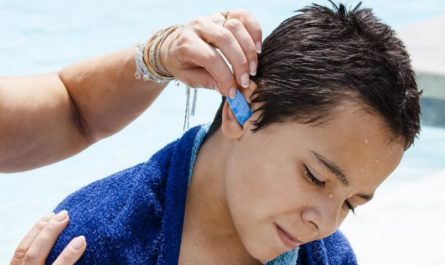Psoriasis is a chronic autoimmune condition that causes the rapid buildup of skin cells, leading to scaling on the skin’s surface. It can affect any part of the body, including the nails. Nail psoriasis affects up to 50% of people with psoriasis and up to 80% of those with psoriatic arthritis. While there are many conventional treatments available for nail psoriasis, such as topical corticosteroids, and systemic medications, some people prefer to try natural remedies first. This article will discuss the 16 best natural treatments for psoriasis of the nails.
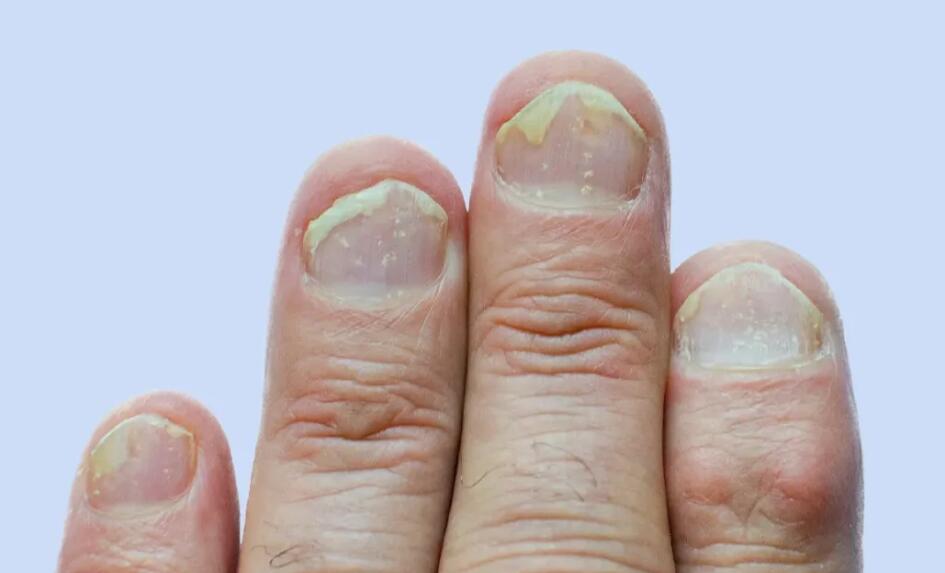
Symptoms of Psoriasis of the Nails
Psoriasis of the nails, also known as nail psoriasis, can present with various symptoms. These symptoms may include:
- Pitting: Small depressions or indentations on the surface of the nails. These pits can be shallow or deep and may vary in size and shape.
- Discoloration: Nails affected by psoriasis may appear yellowish, brownish, or whitish. The color change can be localized or affect the entire nail.
- Nail thickening: Psoriasis can cause the nails to become thickened and hardened. They may appear thicker than usual and have an abnormal texture.
- Separation of the nail from the nail bed: Known as onycholysis, the nail may lift or detach from the nail bed. This can result in pain and discomfort.
- Nail crumbling: Psoriasis can cause the nails to become brittle and prone to breakage. They may crumble easily or develop rough, jagged edges.
- Redness and swelling: The skin surrounding the affected nails may become red, inflamed, and swollen. This can cause discomfort and tenderness.
- Nail deformation: Over time, psoriasis can lead to the deformation and distortion of the nails. They may become irregular in shape, develop ridges, or appear deformed.
16 Natural Treatments For Psoriasis of the Nails
1. Omega-3 Fatty Acids
Omega-3 fatty acids are usually found in fish oil, flaxseed oil, and walnuts. It has potent anti-inflammatory properties that can help reduce the inflammation associated with psoriasis.
A study published in the Journal of the European Academy of Dermatology and Venereology found that daily supplementation with omega-3 fatty acids significantly improved nail psoriasis severity.
To incorporate more omega-3s into your diet, try adding fatty fish like salmon, mackerel, or sardines to your meals a few times a week.
You can also sprinkle walnuts or flaxseeds over your salads or smoothies for an extra boost of these beneficial fatty acids. Alternatively, consider taking a high-quality fish oil or algae-based omega-3 supplement.
2. Vitamin D
Vitamin D plays a crucial role in regulating skin cell growth and is effective in treating psoriasis. Topical vitamin D analogs are commonly used for nail psoriasis. Their application can be maintained for long periods without significant side effects.
In addition to topical treatments, increasing your vitamin D intake through dietary sources like fatty fish, egg yolks, and fortified foods, or by taking supplements, may also help manage nail psoriasis symptoms. However, it’s essential to have your vitamin D levels checked by a healthcare professional before starting supplementation.
3. Turmeric
Turmeric is a vibrant spice rich in the compound curcumin. It has been used in traditional medicine for centuries due to its potent anti-inflammatory and antioxidant properties. Several studies have demonstrated the efficacy of curcumin in improving psoriasis symptoms, including nail involvement.
To incorporate more turmeric into your diet, try adding it to curries, soups, or even smoothies. You can also take curcumin supplements, but be sure to consult with your healthcare provider first, as they may interact with certain medications.
Look for supplements that contain piperine, a compound found in black pepper. This can enhance the absorption of curcumin.
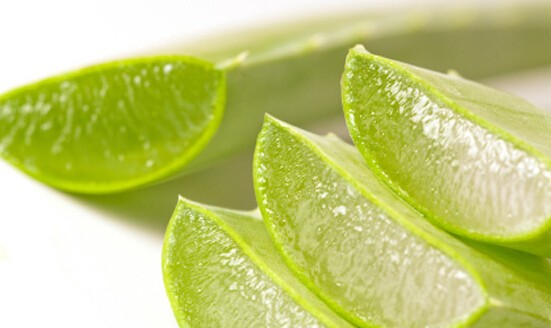
4. Aloe Vera
Aloe vera gel, derived from the succulent plant, has been used for centuries to treat various skin conditions, including psoriasis.
Its anti-inflammatory, antimicrobial, and moisturizing properties make it a potential natural remedy for nail psoriasis. Applying aloe vera gel directly to the affected nails may help alleviate symptoms and promote healing.
For best results, use fresh aloe vera gel from the plant itself. Simply break off a leaf, extract the gel, and apply it directly to your nails. You can also find aloe vera gel products at most health food stores. Look for products with minimal additives and preservatives for maximum potency.
5. Apple Cider Vinegar
Apple cider vinegar has long been touted as a natural remedy for various ailments, including psoriasis. Its acidic nature may help soften and remove thick, scaly buildup on the nails. You can also dilute apple cider vinegar with water and soak the affected nails for best results.
To create an apple cider vinegar soak, mix one part vinegar with two parts warm water. Soak your nails for 10-15 minutes, then gently scrub away any loosened debris with a soft brush or towel. Repeat this process daily or as needed for best results.
6. Tea Tree Oil
Tea tree oil is derived from the Melaleuca alternifolia plant. It has potent antimicrobial, anti-inflammatory, and antioxidant properties that make it a promising natural treatment for nail psoriasis. Dilute tea tree oil with a carrier oil like coconut or olive oil before applying it to the affected nails to avoid irritation.
You can start with a few drops of tea tree oil mixed with a teaspoon of carrier oil, and gradually increase the ratio as needed.
Apply the mixture to your nails and cuticles, and cover with cotton gloves or socks overnight for better absorption. Be sure to do a patch test first, as some individuals may be sensitive to tea tree oil.
7. Epsom Salt
Epsom salt, or magnesium sulfate, has been used for centuries to treat various skin conditions, including psoriasis. Soaking the affected nails in an Epsom salt solution can help reduce inflammation, soften thick nail buildup, and promote healing.
To create an Epsom salt soak, dissolve 1/2 cup of Epsom salt in a basin or foot bath filled with warm water. Soak your nails for 15-20 minutes, then gently scrub away any loosened debris with a soft brush or towel. You can also add a few drops of essential oils like lavender or eucalyptus for added benefits.
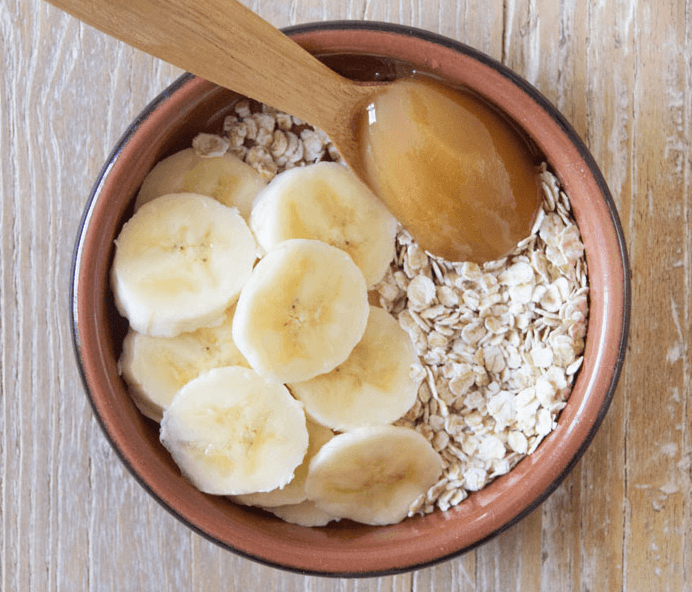
8. Oatmeal
Oatmeal has long been used to soothe and moisturize dry, irritated skin due to its anti-inflammatory and antioxidant properties. Soaking the affected nails in an oatmeal bath or applying an oatmeal paste directly to the nails may help alleviate symptoms of nail psoriasis.
To create an oatmeal bath, grind 1 cup of plain oatmeal into a fine powder and add it to a warm bath. Soak your nails for 15-20 minutes, then gently scrub away any loosened debris with a soft brush or towel. Alternatively, you can make an oatmeal paste by mixing ground oatmeal with water or aloe vera gel and applying it directly to your nails.
9. Baking Soda
Baking soda, or sodium bicarbonate, has natural exfoliating and anti-inflammatory properties. This makes it a potential remedy for nail psoriasis. You can create a paste with baking soda and water, and gently scrub the affected nails.
To make a baking soda paste, mix 2 tablespoons of baking soda with enough water to form a thick paste. Gently scrub the affected nails with the paste, then rinse thoroughly with warm water. Be careful not to scrub too vigorously, as this can cause further irritation.
10. Coconut Oil
Coconut oil is rich in fatty acids and has potent antimicrobial, anti-inflammatory, and moisturizing properties. This makes it a promising natural treatment for nail psoriasis. Applying coconut oil directly to the affected nails can help soften thick buildup, reduce inflammation, and prevent cracking and splitting.
You can warm a small amount of coconut oil in your hands and massage it into your nails and cuticles. For best results, apply the oil before bedtime and cover your nails with cotton gloves or socks overnight. You can also add a few drops of essential oils like tea tree or lavender to the coconut oil for added benefits.
11. Avocado Oil
Avocado oil is rich in vitamins A, D, and E, as well as fatty acids that can help nourish and moisturize the nails. Its anti-inflammatory properties may also help alleviate the symptoms of nail psoriasis. Massage avocado oil into the affected nails and cuticles for best results.
Like coconut oil, avocado oil can be applied directly to the nails and cuticles and left on overnight for better absorption. You can also add a few drops of avocado oil to your regular hand or foot cream for added benefits. Make sure to look for cold-pressed, unrefined avocado oil for maximum potency.
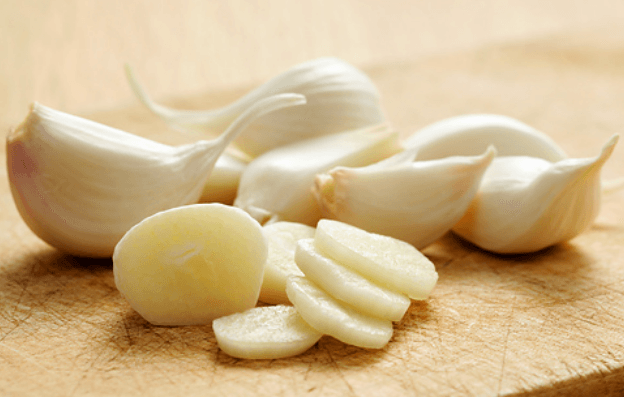
12. Garlic
Garlic has been used for centuries in traditional medicine due to its potent antimicrobial, anti-inflammatory, and antioxidant properties. Applying a garlic paste or consuming garlic supplements may help reduce inflammation and promote healing in nail psoriasis.
To make a garlic paste, crush a few cloves of fresh garlic and mix them with a small amount of olive oil or coconut oil. Apply the paste directly to the affected nails and cover with a bandage or cotton gloves overnight.
Alternatively, you can take garlic supplements. Be sure to consult with your healthcare provider first, as garlic can interact with certain medications.
13. Calendula
Calendula, also known as pot marigold, has been used for centuries in traditional medicine to treat various skin conditions. Its anti-inflammatory and antimicrobial properties make it a potential natural remedy for nail psoriasis. Apply calendula ointment or a diluted calendula tincture to the affected nails.
You can find calendula ointments and tinctures at most health food stores or online. Follow the product instructions for proper application and dosage. Calendula can also be taken internally in the form of tea or supplements to support overall skin health.
14. Neem
Neem, a tree native to India, has been used in Ayurvedic medicine for centuries. This is due to its potent anti-inflammatory, antimicrobial, and antioxidant properties. Applying neem oil or a neem-based ointment to the affected nails may help alleviate symptoms of nail psoriasis.
Neem oil can be found at many health food stores or online retailers. Dilute it with a carrier oil like coconut or olive oil before applying it to your nails to avoid irritation. You can also look for neem-based soaps, shampoos, and creams to incorporate into your daily routine.
15. Probiotics
Probiotics, or beneficial gut bacteria, have been shown to have a positive impact on various autoimmune conditions, including psoriasis.
Consuming probiotic-rich foods like yogurt, kefir, and fermented vegetables, or taking probiotic supplements. This may help reduce inflammation and improve overall gut health, which can positively impact nail psoriasis.
When choosing probiotic supplements, look for strains like Lactobacillus and Bifidobacterium, which have been studied for their potential benefits in psoriasis. As with any supplement, consult with your healthcare provider before starting a new regimen.

16. Stress Management
Stress is a known trigger for psoriasis flare-ups, including nail psoriasis. Incorporating stress management techniques like meditation, yoga, deep breathing exercises, or counseling can help reduce stress levels and potentially alleviate symptoms of nail psoriasis.
Regular exercise, getting enough sleep, and practicing relaxation techniques like progressive muscle relaxation or visualization can also help manage stress levels.
You can also consider trying mindfulness-based stress reduction (MBSR) programs, which are effective in managing stress and improving the quality of life for individuals with psoriasis.
How to Prevent psoriasis of the nails?
There are several steps you can take to manage and minimize its impact:
1. Keep your nails clean and dry: Maintain good hygiene by regularly washing your hands and feet with mild soap and drying them thoroughly. Moisture can worsen psoriasis symptoms, so ensure your nails are always dry.
2. Moisturize regularly: Apply a moisturizer or emollient to your nails and cuticles daily to prevent dryness and cracking. Look for products specifically designed for psoriasis or consult with a dermatologist for recommendations.
3. Protect your nails: Wear gloves while doing household chores, such as washing dishes or cleaning, to protect your nails from exposure to harsh chemicals and excessive moisture.
4. Avoid trauma to the nails: Try to minimize any activities that may cause injury or trauma to your nails, such as biting your nails, picking at them, or wearing tight shoes. Trauma can trigger or worsen psoriasis symptoms.
5. Trim your nails properly: Keep your nails short and filed to prevent them from catching on objects or causing further damage. Use a soft nail file and avoid aggressive filing, as it can exacerbate the condition.
6. Avoid nail polish and artificial nails: Nail polish and artificial nails can worsen psoriasis symptoms and prevent proper ventilation of the nails. If you prefer using nail polish, choose a hypoallergenic and breathable brand.
7. Follow a healthy lifestyle: Maintain a balanced diet rich in fruits, vegetables, whole grains, and lean proteins. Avoid smoking and excessive alcohol consumption, as they can worsen psoriasis symptoms.
When to See a Doctor?
While natural remedies can be effective for managing nail psoriasis, it’s important to know when to seek professional medical advice. Here are some signs that it may be time to see a dermatologist or healthcare provider:
- Your symptoms are not improving despite trying natural remedies consistently for several weeks.
- You experience new or worsening symptoms, such as increased pain, swelling, or joint stiffness, which could indicate the development of psoriatic arthritis.
- Your nail psoriasis is causing significant discomfort or impacting your ability to perform daily activities.
- You notice signs of infection, such as increased redness, warmth, or pus around the nails.
- Your nail psoriasis is causing psychological distress or affecting your mental well-being.
It’s also a good idea to see a doctor before starting any new treatment, especially if you have underlying medical conditions or are taking medications.






